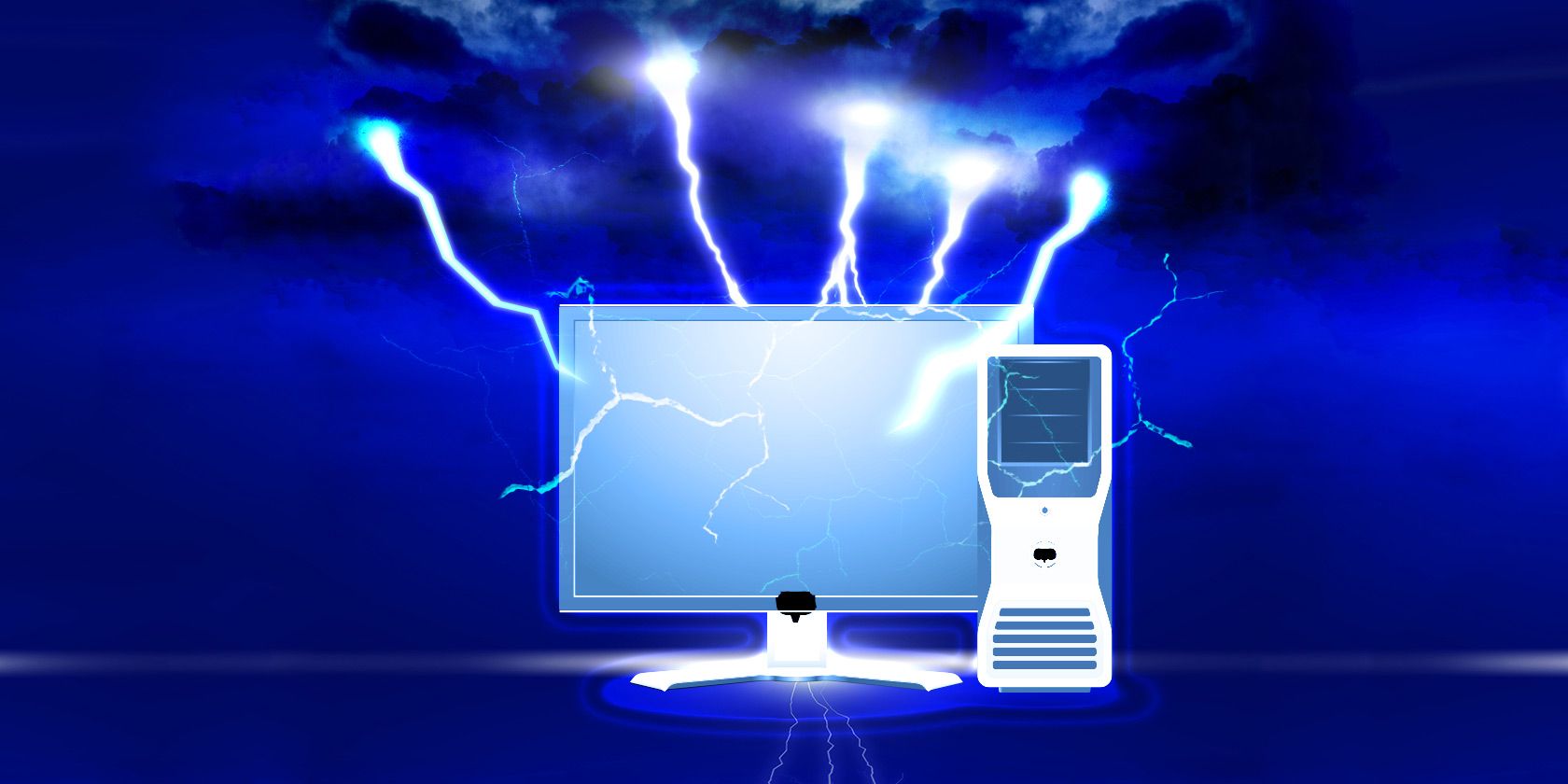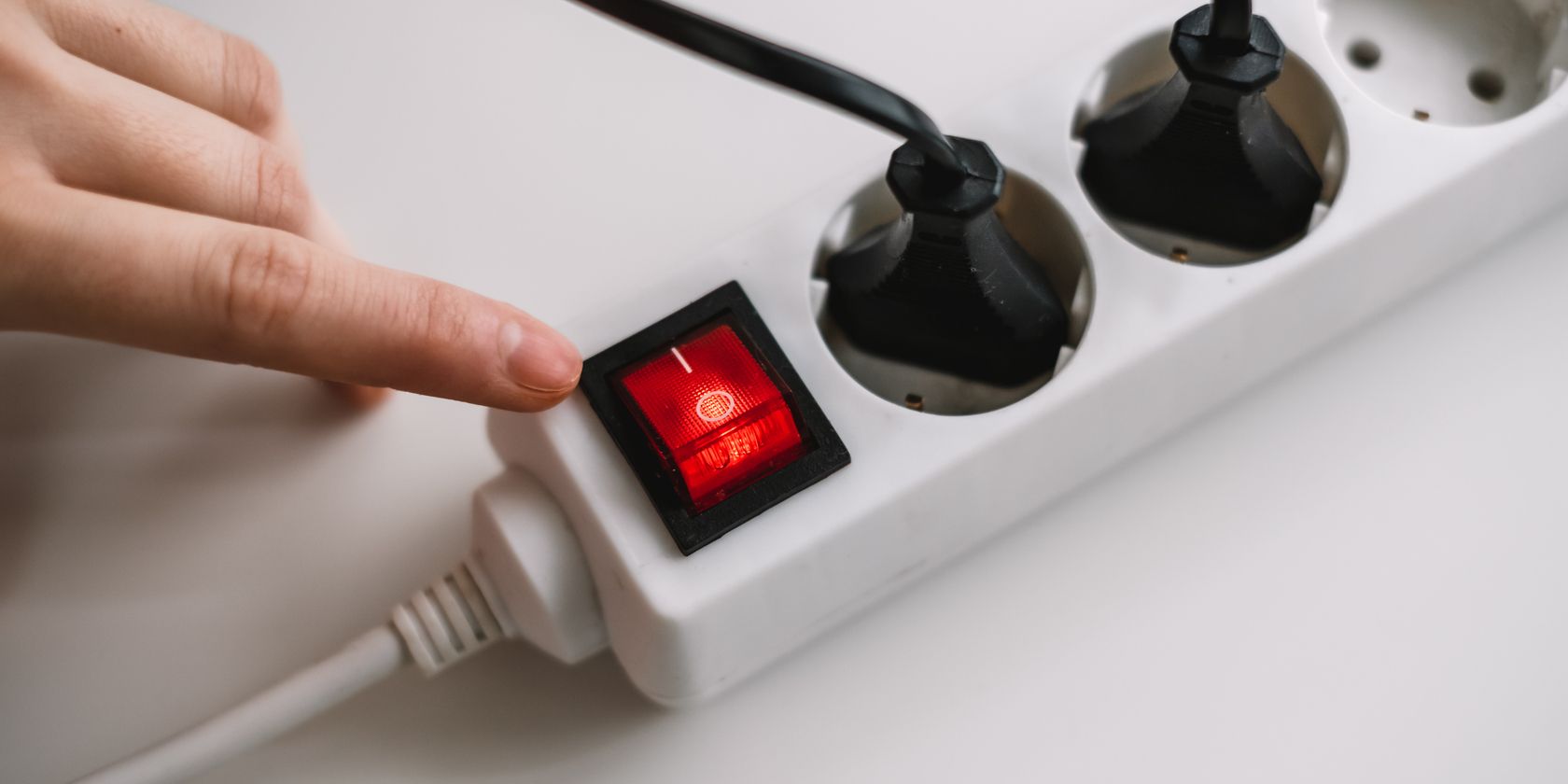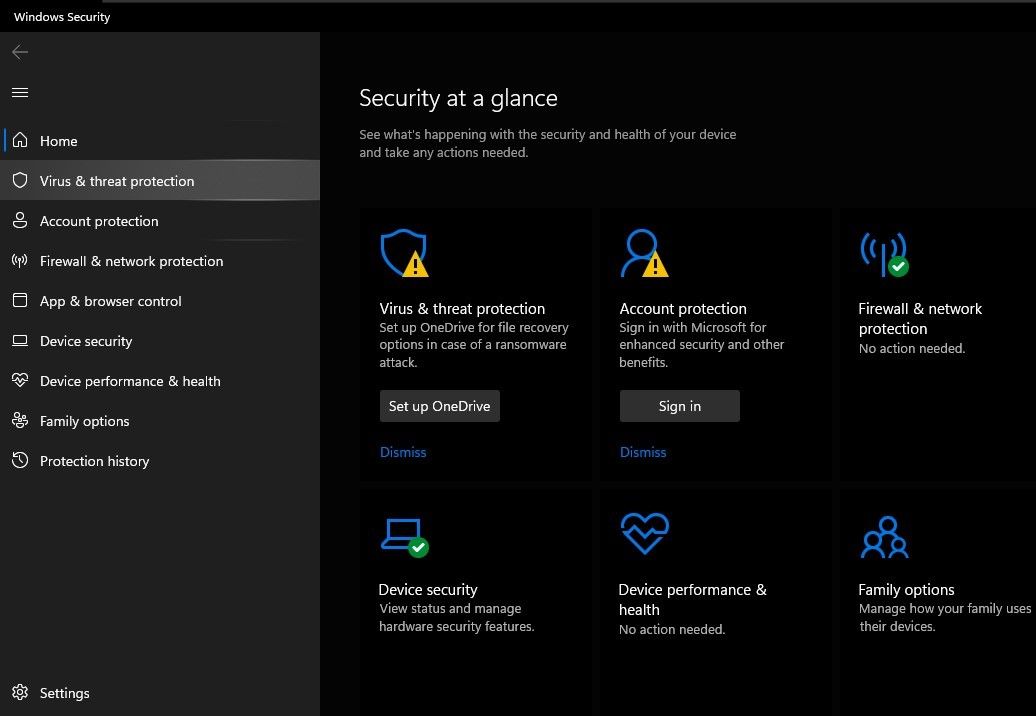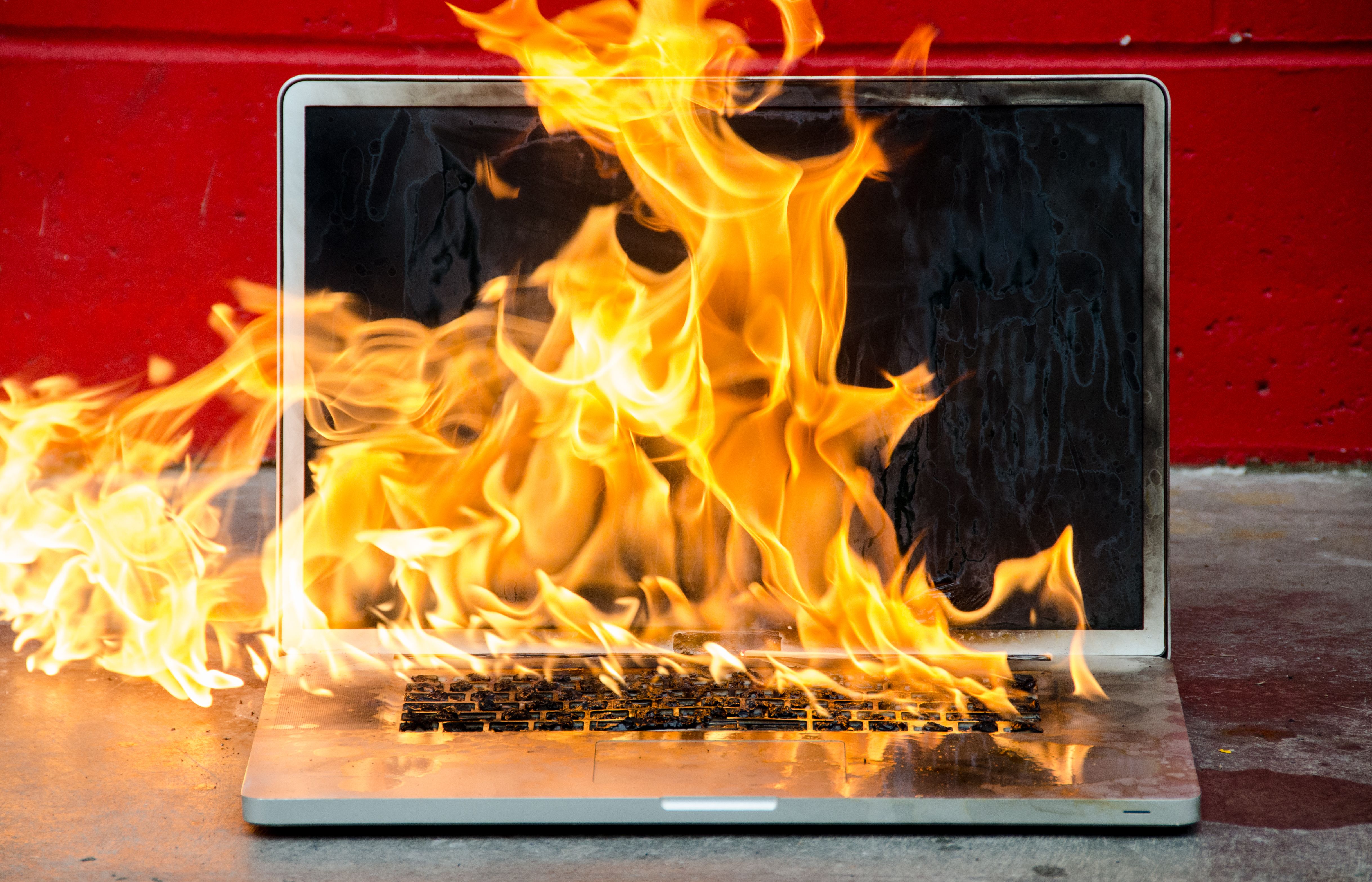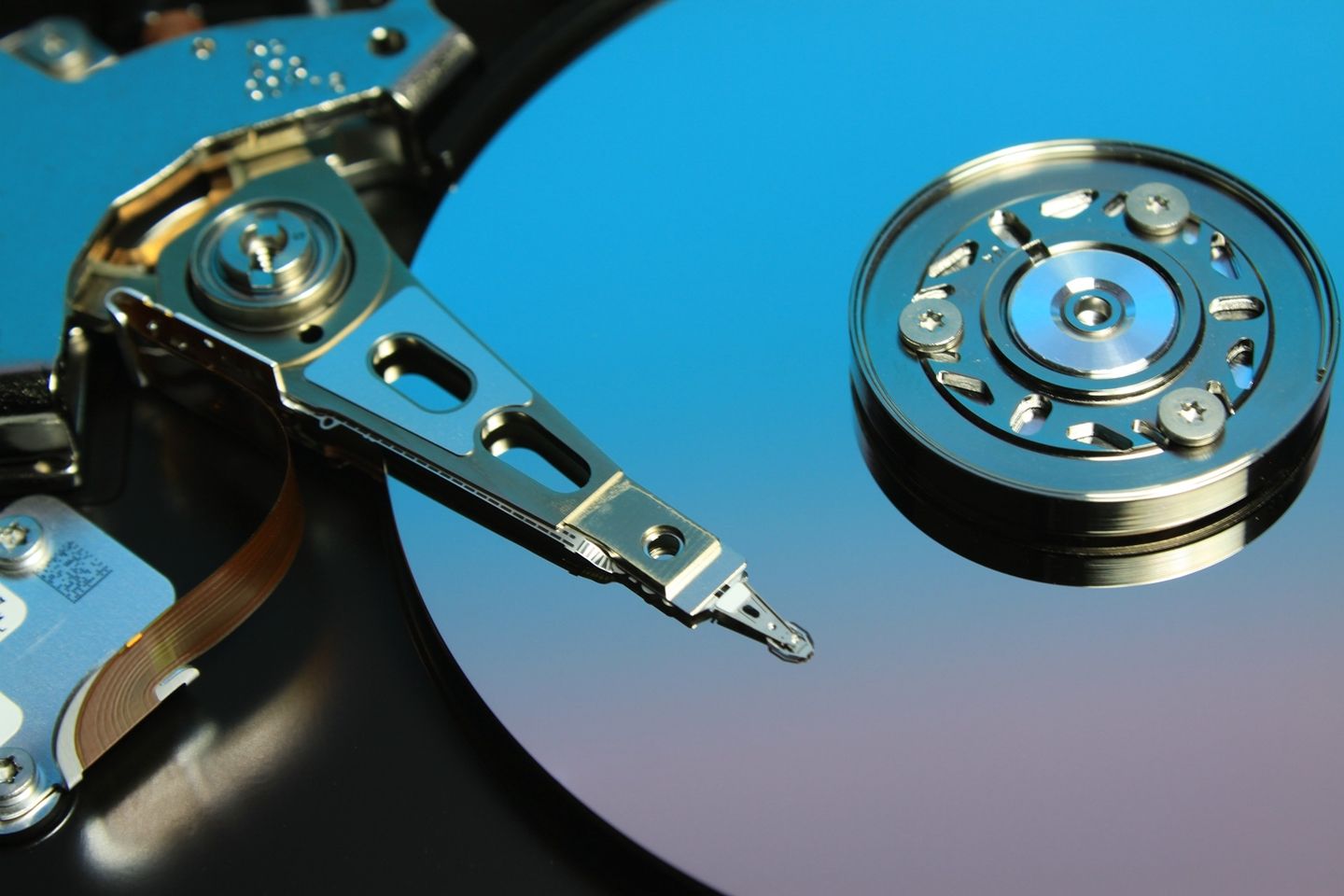Computers are vulnerable devices and can often seem to screw up by themselves, but user error is a huge problem causer. There might be things you aren't aware of being potential hazards and that ignorance could end up wrecking your system.
Don't fear because we've rounded up some top computer accidents that can have disastrous consequences. The great thing is that they're all easy to prevent, providing you act and abide by the advice.
1. Disconnect During a Lightning Storm
Everyone should invest in a surge protector. They're a cheap and useful way to protect your electrical devices from voltage spikes. Simply put, a sudden and drastic change in the power being sent to your devices can damage the components inside. A surge protector will, as the name suggests, block or short to ground any voltage amount that threatens.
However, they aren't fool-proof. Although they can usually successfully guard you against use of high-power electrical devices within the same system, or against a power cut, they aren't so good when a lightning storm hits. If lightning hits near a power line or your house, then it can cause the electrical pressure to increase by a million volts. If your computer is plugged in, a surge protector will not be able to cope with that.
The chances of it actually happening are relatively slim, but not non-existent. This isn't something you want to be taking risks with, especially considering the cost of replacing the damaged equipment. As such, the cheapest and most secure way of protecting yourself during a lightning storm is to turn off and unplug your equipment. It's not enough to just power down—you need to pull the plug, too.
2. Don't Download Something Dodgy
Many viruses exist for Windows because it's the most used desktop operating system. Malicious users know that it's more likely they'll get a hit on Windows, which is why they spend time looking for vulnerabilities in the system and taking advantage of it. If you're not careful about what you're downloading, perhaps from an untrustworthy site or advert, then you could find your system quickly infected.
One type of a virus is a keylogger, which is something that records every keystroke entered. This is then sent back to whoever distributed it, giving them a full record of everything you've typed. That goes beyond Facebook statuses—we're talking contents of emails, passwords, security answers... you type it, they've got it. The damage can be massive and you might not even know it's occurring.
As such, not only is it paramount that you're careful with your downloads, but you also need protection to fight viruses. On top of using anti-virus software, you might also want to consider monitoring your network to make sure nothing is sent externally, and using tools specifically designed to fight keyloggers.
3. Don't Let Your Laptop Overheat in a Confined Space
Some laptops can get hot at the best of times, let alone when in a confined space. Theoretically, a thermal shutdown circuit should shut everything down if the system is becoming dangerously hot, but it's never safe to rely on that. If you finish with your laptop, put it to sleep and then leave it somewhere enclosed (like in a laptop bag), it might be time to reconsider.
Putting a system to sleep doesn't mean that it relies solely on you to wake itself up. For example, a system will come out of sleep if it has a scheduled task to perform. The same thing can happen with the Wake On LAN protocol. You might consider disabling things like this to stop your system waking on sleep, but that defeats the point if you actually make use of them.
Instead, it's advisable to shut down your laptop entirely if you're going to leave it somewhere where it can't ventilate properly. There have been horror stories of components melting due to the heat. Unless you're going to be installing a sprinkler right above the laptop, just turn it off completely.
On a related note, if you use a desktop computer, it's equally important to give it room to breathe. Although the components inside aren't as crammed as in a laptop, you still need to give the case breathing room so that the fans can successfully pull air in and out of the case. This means don't store the desktop inside a cupboard or backed up against a wall; ideally, keep it off the floor to reduce dust.
4. Don't Drop Your Hard Drive
Hard disk drives are sensitive pieces of equipment. Unlike solid state drives, which have static components, hard drives are mechanical devices that have a head that floats above a spinning platter to read and write data. Although the platter is coated with a non-electrostatic lubricant that helps protect it from minor collisions, if it has serious impact then it's going to scratch and damage the platter.
If the platter gets damaged in any way, there'll be a major risk of data loss. It's where your data is kept, and if it gets damaged then there's no way that the head can access it. If you consider that dust landing on the platter can potentially cause harm, which is why you should never open up your drive in anywhere but a specialized clean room, imagine what would happen if the head collides with it.
As such, you need to be ultra-careful not to drop a hard drive, especially if it's an external one that's constantly on the move. It might sound obvious, but although something like a smartphone can survive a drop, the chances are less likely on a hard drive. It's always important to ensure you have a backup of your data and this is just another reason to show why.
5. Avoid Aggressive Disk Cleaners
We all like to keep our systems running smoothly. It's satisfying to make a change that makes your computer run that bit quicker, or to clean out your hard drive to free up a bunch of space. But you need to be cautious when using disk cleaner tools because if you're too aggressive with them, you could end up causing more harm than good.
It's not uncommon to hear about people corrupting their registry because they don't understand the importance of it. The registry saves settings at a system-wide level and using a poorly designed registry cleaner can end up wiping out things you actually need, rendering programs or the operating system useless.
Overzealous cleaning can break Windows, so be sure to read up on things not to do. This includes deleting your recovery partition, erasing system files, and deleting important drivers. It's great to have a clean system, but make sure you know the limits before you begin chopping.
Help Prevent an Accident
A power surge, a dropped hard drive, an over-cleaned computer... all of these and more are accidents waiting to happen, but hopefully you're now aware of the steps you need to take to prevent them.
Be on the look out for warning signs that your computer is about to crash. Boot errors, corrupted files, and loud fans are all sure signs that something is afoot.

